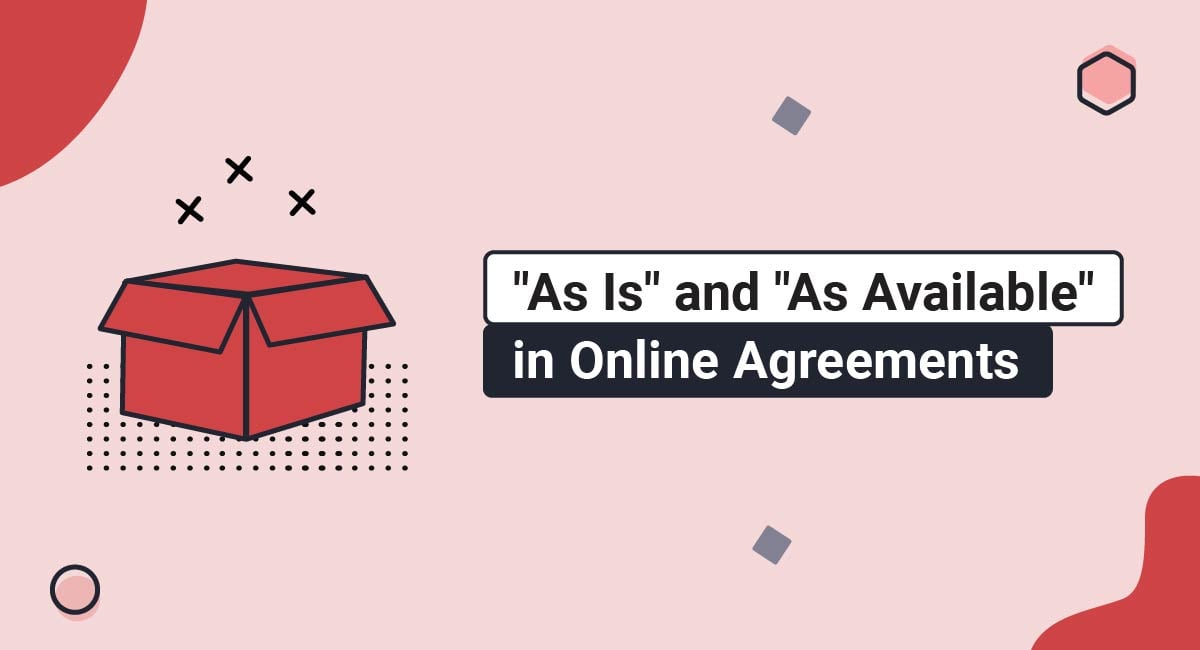Advertising disclaimers is a statement that lets people know that you're being compensated in some way for your public post about a product or service, so that it is in effect an advertisement post.
This article will explain when and why you need an advertising disclaimer and help you create and display one for your business or blog so you can advertise in a trustworthy, legally-compliant way.
Our Disclaimer Generator can generate a legal disclaimer for your business, website or mobile app. Just follow these steps:
-
At Step 1, select where your Disclaimer will be used.
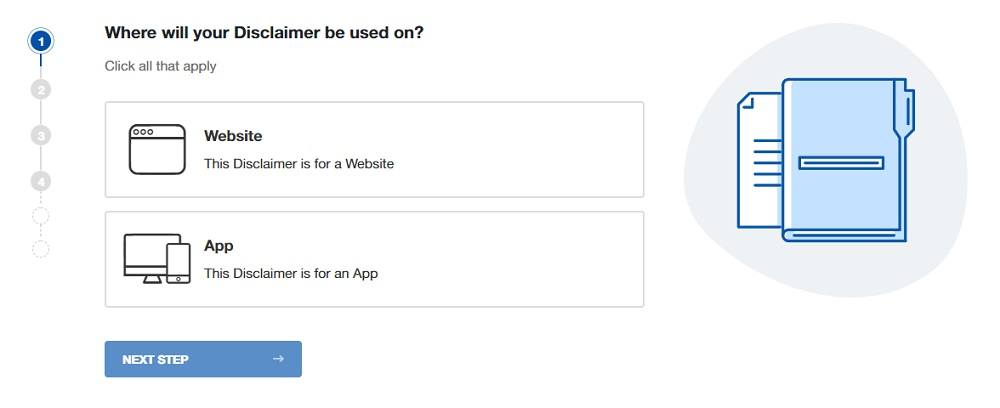
-
At Step 2, add in information about your website/app and business.

-
Answer some questions about your business practices.
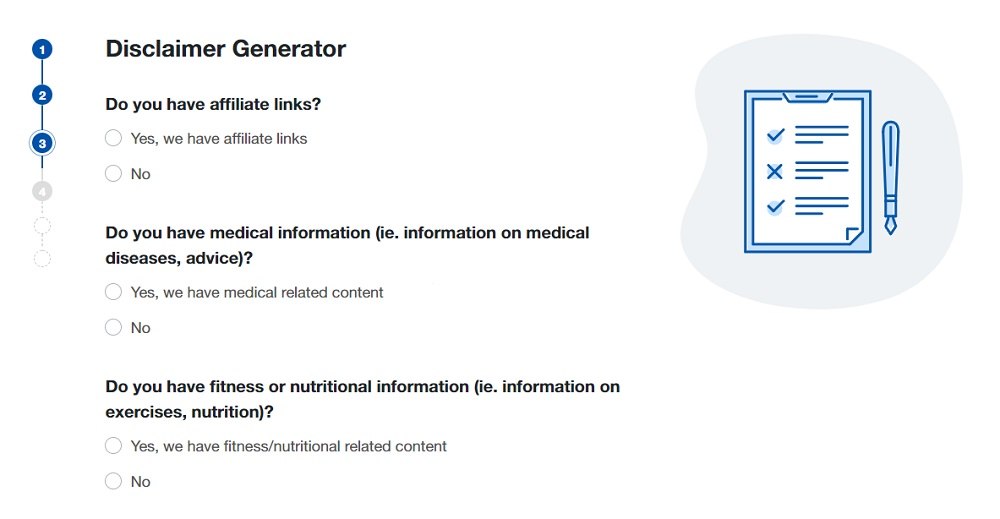
-
Enter an email address where you'd like to receive your Disclaimer and click "Generate."
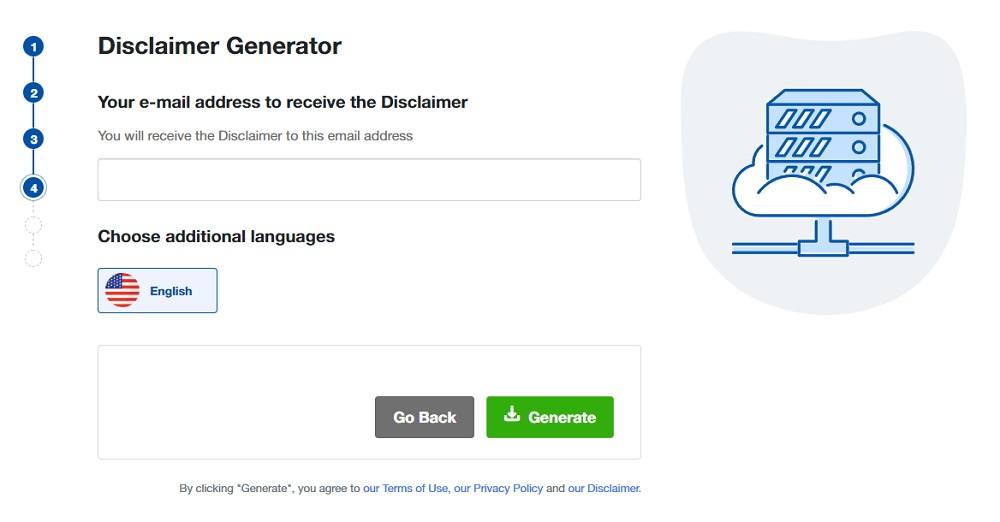
Done! You'll be able to instantly access and download your new Disclaimer.
- 1. The Effects of Advertising
- 2. Truth in Advertising
- 2.1. What is a Deceptive Ad?
- 2.2. How Does the FTC Determine a Deceptive Ad?
- 2.3. Penalties for Deceptive Ads
- 2.4. What Kind of Advertising Does the FTC Focus on?
- 3. Advertising Disclaimers
- 4. Examples of Disclaimers
- 5. When Do You Need an Advertising Disclaimer?
- 6. Four Common Advertising Disclaimers
- 6.1. 1. Affiliate and Testimonial
- 6.2. 2. Legal Advice
- 6.3. 3. Medical/Pharmaceutical Advice
- 6.4. 4. Professional Services
- 7. How to Write Ad Disclaimers
- 7.1. Accuracy of Information in Your Ad
- 7.2. Comments Others Leave
- 7.3. Content Contributors
- 8. Displaying Your Advertising Disclaimer on Your Site
The Effects of Advertising
Advertisements are still a standard in television today. However, it's changed drastically since 1941 when it all began. Today, it is a multi-billion dollar industry.
While that's impressive, even more advertising now happens online than on television.
In 2017, digital advertising surpassed TV advertising for the first time. Giants like Facebook and Google make billions every year from digital advertising.
Online advertising is not limited to the giants, though.
Blogs and websites carry advertisements. Celebrities and influencers advertise with their social media pages where they can reach millions of people with each post. The influence of social media on advertising is consistently increasing.
With the increase in advertising, there is a possibility of losing the 'Truth in Advertising.'
Truth in Advertising

When someone is presented with an advertisement, the ad should be truthful and not misleading. This applies to all ads regardless of whether it's a radio, television or internet ad.
It's the job of the Federal Trade Commission in the United States to make sure 'truth in advertising' laws are adhered to.
The standards are not different for traditional media or digital media.
The FTC insists on some requirements for ads:
- Advertising must be truthful and non-deceptive - This means that your ad should not contain promises you will not fulfill. It should also not contain statements that are attractive but not accurate. Advertising for a 'free' trial drug that users will have to pay something for - even something nominal - is a good example here.
- Advertisers must have evidence to back up their claims.
- Advertisements cannot be unfair - Your ads should not promote products or services that can cause harm to the health of users.
The FTC focuses more on ads that affect consumers' health and their pocketbooks. Ads on food, drugs, dietary supplements and alcohol are put under considerable scrutiny.
Claims on high-tech products and the internet also receive significant attention.
Truth sometimes isn't black and white. An ad does not have to be untrue to be considered deceptive.
What is a Deceptive Ad?

According to the FTC, an ad is deceptive if it does one of the following:
- Contains or omits information that is likely to mislead consumers acting to the best of their knowledge.
- Contains or omits information that is important to the consumer's decision to buy or use the product.
If there is a chance your ad will leave an ordinary consumer with a false impression, then it is deceptive.
The FTC has provided a helpful Advertising FAQ that works as a guide for small businesses.
In 2017, Uber settled a false ad charge for $20 million. In a bid to attract drivers, Uber had exaggerated the earnings the drivers would make. This is considered to be a deceptive ad.
That same year, Moonlight Slumber, a company based in Illinois, was charged with deceptive advertising. The company ran ads on its website that claimed its mattresses were organic. The FTC, however, found out that they made very little of the mattresses with any organic material.
The company also presented its products to have been certified by the 'Green Safety Shield.' It did not state, however, that the Shield was its own designation. The company basically created it and then awarded it to its own products.
It's not difficult to see how deceptive that was to consumers.
How Does the FTC Determine a Deceptive Ad?

An FTC inquiry follows these stages:
- The FTC studies the ad from the perception of a typical, ordinary, reasonable consumer.
- The FTC examines the ad in context. They look at the graphics, the colors and the phrases to determine what it expresses to the consumer.
-
The FTC looks at both express and implied claims. An express claim is clearly stated in the ad.
For example:
'XYZ syrup prevents catching the flu.' This is an express claim. You know taking XYZ syrup will prevent catching the flu.
'XYZ' syrup kills germs that cause the flu.' This claim implies that XYZ syrup prevents the flu even though it is not clearly stated. A reasonable consumer will assume since it 'kills germs that cause the flu' it will prevent the flu.
Advertisers must have evidence to back up both their express and implied claims.
The FTC considers what the ad leaves unsaid. Meaning, it checks if there is any information left out that will misinform the consumer about the product.
For example, consider the case where Emergen-C needed to change its ads because it didn't inform people that too much Vitamin C can cause several side effects.
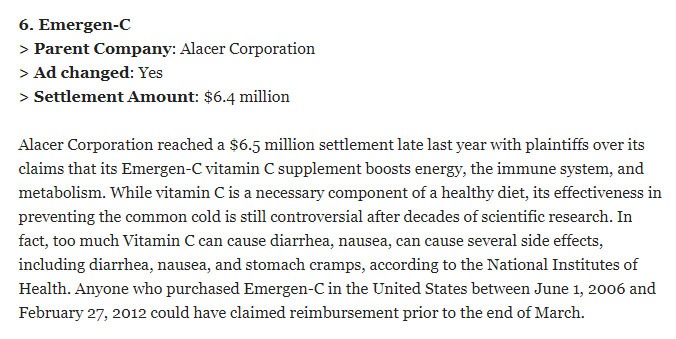
- The FTC looks to see if the claim would be material and critical to the customer's decision to buy. Examples of material claims are a representation of the key features, effectiveness and performance of the product.
-
The law demands that advertisers have proof to substantiate their claims before they run ads with the claims. The FTC, therefore, checks to see if the advertisers have enough evidence to back up their claims.
Enough evidence, in this case, means as much proof as it claims to have in the ad. If for example, an ad says "two out of three people got instant results" you must have evidence of that happening.
If the numbers aren't that specific, experts will determine what enough evidence is.
Here's a section from the FTC's FAQ linked above:
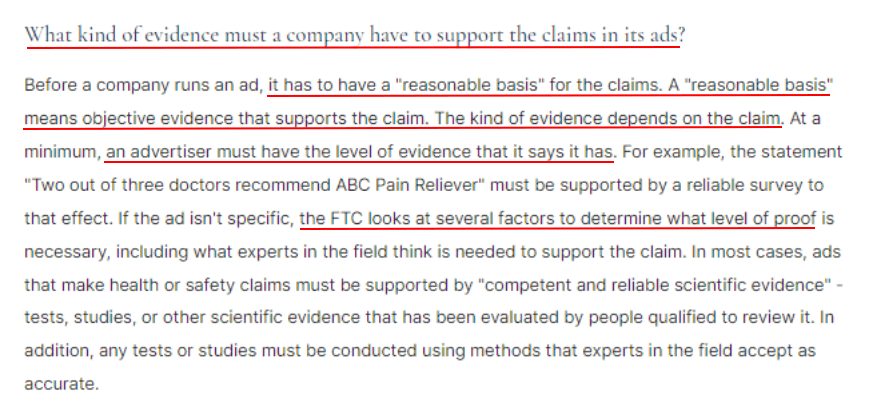
Penalties for Deceptive Ads

Companies that post misleading ads will be penalized according to the degree of the violation.
Here are some penalties the FTC or courts can give to companies who engage in deceptive advertising:
- The guilty company gets a cease and desist order. This requires the advertiser to immediately stop running the ad.
The company will also have to send the FTC the evidence and substantiation it has for new ads.
A fine of $40,654 per day, per ad if they err again.
- Civil penalties, consumer redress and sometimes reimbursements to consumers will be ordered. Civil penalties can range from thousands to millions of dollars in fines depending on the nature of the offence.
- Corrective advertising and disclosures may be ordered. Some advertisers have had to take out new ads to correct the misinformation they had earlier spread. These new ads must inform buyers about the false claims in the previous ad.
What Kind of Advertising Does the FTC Focus on?
The FTC looks for general honesty and truth in all advertising, but it especially focuses on the following types of ads:
- Adverts that make claims about health or safety:
- XYZ will reduce the chance of skin cancer
- XYZ filters will remove harmful chemicals from tap water
- XYZ homes don't need to be baby-proofed
- Adverts that consumer has no way of verifying themselves:
- XYZ oil will reduce wear and tear on your lawn mower by 35%
- XYZ spray is safe for the Ozone layer
- XYZ oven cuts calories in your pastries
Subjective claims like 'XYZ cakes is delicious' don't receive much attention from the FTC. The consumers can judge those by themselves.
Advertising Disclaimers

An advertising disclaimer is a statement informing consumers that you have been paid or given some form of compensation to promote a product. Here's an example:

Running a blog or a website can be a great way to earn money doing something you love. Advertising is a popular and growing source of income for bloggers. You must, however, always disclose advertisements in an advertising disclaimer.
This type of disclaimer can also be a statement added to a claim to help the consumer better understand the product and make an informed decision, and can help protect you from liability. It's a warning to your website visitors that products advertised could harm them in specific ways and that you bear no liability if this occurs.
In short, any ad that is deceptive or a consumer can possibly misunderstand needs a disclaimer.
You can use disclaimers in different ways, depending on the nature of your blog or website. It also depends on the product you are advertising.
Examples of Disclaimers

The American Speech-Language-Hearing Association (ASHA) has a disclaimer stating that products sold in ads on the site have not been evaluated or endorsed by ASHA:
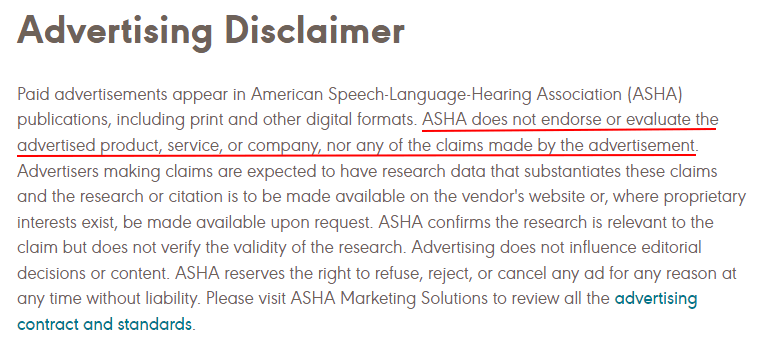
ASHA states that ads need to be backed by research and have evidence to substantiate their claims. However, it states that it only confirms that the study is relevant but does not prove the research.
This way, readers of ASHA know they can stake that trust on the reputation of the advertisers and not ASHA's.
Mommies of Miracles states in its advertising disclaimer that its not responsible or liable for the conduct or performance of the ads on its site:
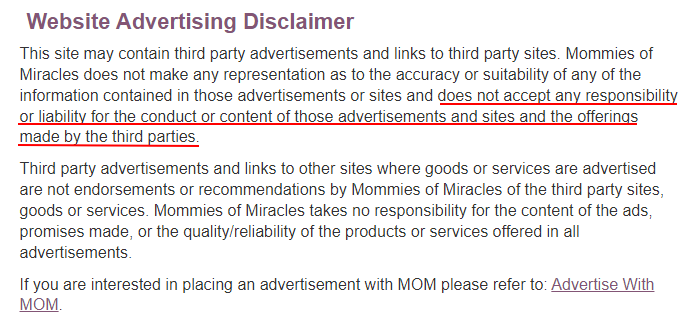
The company also disclaims any responsibility for the quality of the products and services offered in those ads.
When Do You Need an Advertising Disclaimer?

If your website provides ads for products and services, then you need one.
If advertisements running on your website can be considered deceptive, you especially need a disclaimer.
As said earlier, false advertising can lead to lawsuits filed against you. A disclaimer is a powerful, protective tool.
There are two major ways to know you need a disclaimer.
- Would a reasonable, ordinary viewer of the product ad find it to be deceptive?
Consider this perspective when determining whether an ad is deceptive and will need a disclaimer.
Your ad can still be deceptive without being an outright lie.
Advertisements that describe a customer's experience that may not be typical can be considered misleading, like so:

The ad above, for example, shows a weight loss system and the results of one woman. Your ad will be deceptive without the disclaimer saying that the results shown are not typical. This means other users may not experience the exact results.
- Does the ad carry a material claim that may be deceptive?
If your ad includes an actual number or figure that you cannot prove or have not proven yet, you need a disclaimer.
For example, saying a drug "will lead to the loss of 20 pounds" can be considered deceptive because there's no way you can prove that every person will lose 20 pounds. An ad promoting a refrigerator that will save you $20 in electricity costs without any actual proof of that is also misleading.
Please note that your website can be considered an ad, especially for lawyers and law firms. So you'd need an ad disclaimer. If you're in a highly regulated space you want to be sure of what's considered an "ad" in your industry. You can avoid a lot of stress by adding an ad disclaimer to your site.
Four Common Advertising Disclaimers

There are several types of disclaimers you could use, but here are the four types most commonly used by websites: Affiliate and testimonial, legal advice, medical advice and professional services.
Let's look deeper at each.
1. Affiliate and Testimonial
The FTC says that any affiliate that gets paid to use reviews, rankings or testimonials to promote or endorse a product must disclose this.
Here's an example of an affiliate disclaimer on a review website that uses affiliate links:
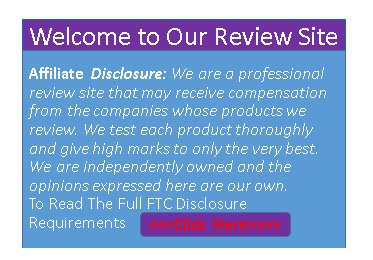
2. Legal Advice
Does your business provide legal advice? If so, here are a few disclaimers you need to have on your site.
- No attorney-client privilege: You should warn users of your websites that any contact with them via email or otherwise is not confidential. The regular attorney-client confidentiality does not cover it.
- Attorney Advertising: If you're in the U.S., depending on your state of operation, lawyers should have the phrase 'Attorney Advertising' on their sites. Check with your state's laws to know what regulations you'd have to abide by if you own a website as a lawyer or law firm.
For example, lawyers in New York are required to put 'Attorney Advertising' on the website's homepage.
- Misleading information: Your advertising cannot contain inaccurate or misleading information. You have to base your advertising on facts. Don't promise specific numbers that cannot be guaranteed. Don't raise the expectation of your clients unduly.
- Responsibility: Your disclaimer must identify which attorneys are responsible for the advertising materials on your site. See the example below:

- Specialization: Don't use words that indicate you have expertise in fields you do not.
- Liability for Cost: Are your clients responsible for the costs you incur on a case in spite of the results? Specify this so to avoid confusion.
3. Medical/Pharmaceutical Advice
While the FTC is responsible for the regulation of advertisement of over-the-counter drugs, the FDA is responsible for the advertisement of prescription drugs.
An ad that names a drug and its benefits is called a product claim ad. The FDA requires that such ads be truthful and use understandable language.
The FDA requires that every product claim advertisement contain 3 elements.
- The name of the product advertised
- The FDA-approved uses of the drugs
- The risks of the drugs
Both the benefits and the risks must be presented in a balanced, clear and conspicuous manner.
If the ad is written, which should include your website, you are required to add this statement:
"You are encouraged to report negative side effects of prescription drugs to the FDA. Visit MedWatch or call 1-800-FDA-1088."
You should inform readers of your website that you are only there for educational purposes. You should not replace medical advice from a qualified medical personnel with the advice on your website.
Include a medical disclaimer for added liability protection.
4. Professional Services
If your website provides a professional service, you need to tell your consumers your site is for information and does not substitute a real-life professional, and that you are not liable for any injury that occurs after following your advice.
An automotive engineer may explain on his website how to change the oil in your car but can't be responsible for you doing it wrong or damaging your vehicle.
How to Write Ad Disclaimers

How you write your advertising disclaimer will depend on the service you provide, but it should always be accurate and include transparent information.
Accuracy of Information in Your Ad
In this type of disclaimer, you state that you cannot be held responsible for any inaccuracies in ads on your website. You will therefore not be liable for any losses.
Here's an example from PwC:
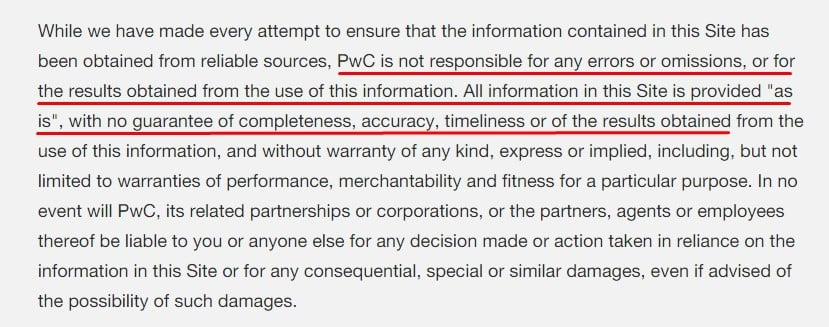
Comments Others Leave
This means that you are not responsible for the comments that visitors to your site leave. You reserve the right to remove any comment you decide is offensive or misleading.
Here's how BCS does this:
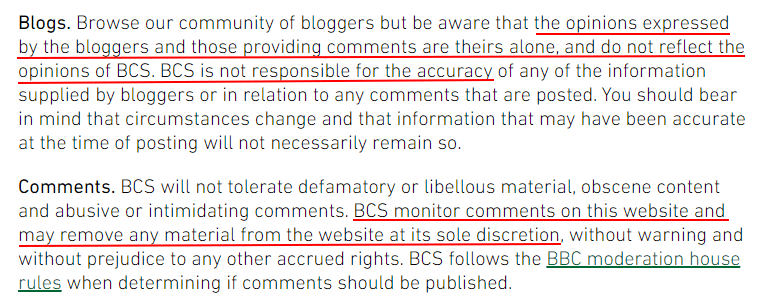
Content Contributors
This disclaimer is good to have if you are not the only one who writes on your blog, such as if you have multiple or guest writers who may promote products. You state that you are not responsible for the thoughts and opinions or recommendations of your contributors.
This was covered in an earlier example from Ruckdeschel Law Firm that stated what individual was responsible for the blog's content.
Displaying Your Advertising Disclaimer on Your Site

You should consider the following essential factors when putting your disclaimer on your website:
- Your disclaimer must be clear and conspicuous. It must be close to the claim it relates to. You cannot hide your disclaimer in fine print somewhere far away from your ad. It must be evident to the consumer what ad the disclaimer refers to.
- Your disclaimer cannot be used to correct or contradict an untrue statement made in the ad. For example, if your ad states "lose ten pounds without exercise," you cannot add a disclaimer saying "exercise required." This is not enough to remedy the deceptive advert.
- Use clear and unambiguous language. The point of the disclaimer is to provide your consumer more information if they can't read it, it defeats the purpose.
- The disclaimer must be legible and spend long enough time on your screen so it can be read. There are no clear laws on font, but the FTC has taken action against claims that are too tiny or flashes so that it is not readable.

Comprehensive compliance starts with a Privacy Policy.
Comply with the law with our agreements, policies, and consent banners. Everything is included.

